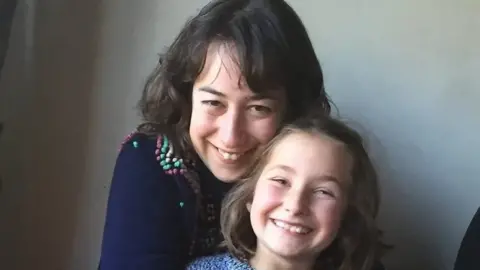Martha’s rule expanded across England after hundreds of lives saved
Just nowSmitha Mundasad and Judith BurnsBBC News

 Merope Mills
Merope MillsMartha’s rule, a way for families to seek an urgent second opinion if they are concerned about the care their loved ones receive, will be rolled out across all English hospitals delivering acute or short-term treatment.
The telephone helpline, the result of a campaign by the parents of 13-year-old Martha Mills who died after serious failings in her care, has been piloted in 143 hospital sites in England since April 2024.
Figures from NHS England show that since then there have been almost 5,000 calls, resulting in 241 potentially life-saving interventions.
Martha’s mother, Merope Mills, welcomed the expansion on what would have been her daughter’s 18th birthday but wants UK-wide access.
She told BBC Radio 4’s Today programme the new figures proved the need for the rule and “a different, more equal kind of doctor-patient relationship”.
Martha Mills, died at King’s College Hospital in London after developing sepsis. Her family’s concerns were not listened to.
In 2022 a coroner ruled Martha would probably have survived if she had been transferred earlier to intensive care and given appropriate treatment
The initiative encourages families, carers and patients to speak up if they notice changes in the patient’s condition and to seek an urgent review from a critical care team if the patient is deteriorating and their concerns are not being listened to.
Under the scheme, clinicians also record daily insights about a patient’s health directly from families.
Staff, including those in junior roles, can also ask for a review from a team independent of the one they work with.
Data from NHS England shows of 4,906 calls to Martha’s Rule helplines, almost three quarters (71.9%) were from families seeking help:
- 720 led to changes in care, such as new antibiotics or drugs
- 794 helped address delays in investigations or treatments
- 1,030 helped resolve communication issues or problems with patients being discharged
Merope Mills said she was delighted more people were going to get access to the rule.
“I think the data proves there is an need for it and has reassured us and clinicians up and down the country that it is already saving lives.
“And more importantly it has highlighted the need for a different, more equal kind of doctor-patient relationship in the country.”
She called for an expansion of the scheme to the rest of the UK, saying it was unfair patients did not have access to it everywhere. She also highlighted a need for it in maternity care.
Martha doctor’s failings ‘particularly grave’
Health Secretary Wes Streeting said he was grateful to NHS staff who have embraced the campaign and “most of all to Merope and Paul and the Mills family for their campaigning efforts”.
He promised to share the latest results with colleagues in Scotland, Wales and Northern Ireland.
He said he had “seen and heard similar experiences where mothers were not listened to in maternity services”.
“So I do think that there are common issues here for the NHS to learn from in terms of listening to patients, listening to women in particular, and making sure that we respond in the right way, in the right place, at the right time to avoid harm and in worst cases, fatalities.”
On Radio 4, Ms Mills read out an email she had received from a Today programme listener who believed the life of a child in her family had been saved after calling the hotline.
She read: “I followed Martha’s story on Radio 4, never thinking anyone I knew would need to use Martha’s rule.
“Thank you from the bottom of my heart for everything you have done and are doing to raise awareness and to empower people in an environment where we all naturally feel intimidated.”
Ms Mills said while she knows some people feel the word patient doesn’t apply to them: “The reality is we are all, as I know, one disaster away from it being about us…
“It could be your mother, it could be your sibling, God forbid it could be your kid who one day needs this,” she said.
An ongoing full evaluation of Martha’s rule will help inform its possible future expansion into hospitals involved in longer term care, mental health trusts and community settings.
The Welsh Government is introducing a similar scheme, called Call4Concern, which is expected to be rolled out to all hospitals by the end of next year.
The Scottish Government is testing a number of Martha’s rule pilots and considering developing a “more consistent, nationwide approach”.
The department of health in Northern Ireland said it was “committed to improving patient safety” and whilst there were no immediate plans to introduce Martha’s rule there, it would continue to monitor the roll-out and impact in England.